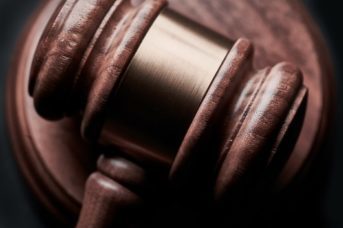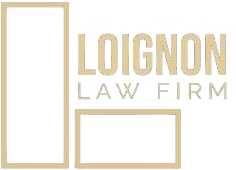 If you have been arrested and charged with a crime, it is very likely that you have entered a world that you have only seen on TV. The reality is much different, and so this article attempts to simplify what the criminal system/process looks like in South Carolina. This is a very oversimplified explanation. In the months to come we will be drilling down into specific topics discussed in this article.
If you have been arrested and charged with a crime, it is very likely that you have entered a world that you have only seen on TV. The reality is much different, and so this article attempts to simplify what the criminal system/process looks like in South Carolina. This is a very oversimplified explanation. In the months to come we will be drilling down into specific topics discussed in this article.
Step 1: Criminal Charges
A criminal case begins with either an arrest at the same time as the alleged crime, or an investigation that leads to an arrest warrant and an arrest that occurs later. To arrest someone or have warrants issued to arrest someone, law enforcement is required to show probable cause that a crime was committed and the person to arrest has committed that crime. The definition of probable cause, with its roots in the Fourth Amendment, could be the subject of another article all by itself since it has been debated by courts and legal scholars for decades. For our purposes, it can be described as simply any a reasonable basis for believing that a crime may have been committed (a very low standard).
Step 2: Bond Hearing
Once charged and arrested, the defendant is entitled to a bond hearing within 24 hours. The bond hearing is held in front of a magistrate judge. The judge is concerned with whether the defendant is a flight risk or a danger to the community when determining whether a bond should be set, and at what amount. The presumption is that all defendants, who are presumed innocent until proven guilty, should receive a personal recognizance (PR) bond unless other factors such as prior criminal record or out of state ties influence the situation. If a bond is set the defendant can post the bond personally or through a bail bondsman and get out of jail pending trial.
Step 3: Preliminary Hearing
The preliminary hearing is generally the next step in the process, although it must be requested by the defendant within ten days of the arrest. The preliminary hearing is also in front of a magistrate judge and the purpose is solely to determine whether sufficient evidence exists to warrant the defendant’s detention and trial under the probable cause standard. By rule, the preliminary hearing is supposed to be held within ten days of the request, although in practice this rarely (if ever) occurs. Most cases are “bound over” at the preliminary hearing, meaning there is enough evidence for it to continue to trial. Some cases with very little evidence to support probable cause may be dismissed at the preliminary hearing.
Step 4: Discovery
In a criminal case, the State is required to turn over all evidence gathered in the investigation by law enforcement, and all evidence used by the prosecutor when preparing the case for trial. The defendant, maintaining his or her right to remain silent, has no such obligation to turn over documents and things gathered in preparing a defense. A timely discovery motion and investigation into the State’s evidence is crucial when preparing a defense for trial.
Step 5: Indictment
For a case to proceed to trial, every criminal charge must be presented to the county grand jury. The grand jury is a panel of ordinary citizens chosen for a one-year term. They meet monthly and review the evidence supporting each charge presented to them to determine if there is probable cause for the case to continue to trial. The process is very secretive, there is no court reporter, and the defense is not allowed to be present. An overwhelming majority of charges are “true billed” by the grand jury, meaning probable cause was found for the prosecution to continue.
Step 6: Diversionary Programs
There are many diversionary programs that keep defendants out of court to resolve charges. Defendants with no prior record may be eligible for pre-trial intervention (PTI) where successful completion means the charge is dismissed. Other charges may be eligible for transfer court, where a general sessions felony or misdemeanor charge is reduced and sent to magistrate court and resolved with the payment of a fine. Defendants with substance abuse problems, mental health issues, or anger management issues also have certain programs that may assist them in resolving their charges without going to court.
Step 7: Plea Bargain
Most defendants will receive a plea offer from the prosecutor offering to provide some incentive for the defendant to plead guilty rather than go to trial. The plea offer may be a reduction in the charge, a recommended or negotiated sentence, dismissal of other charges, or something else. The attorney can negotiate a plea offer for the client, but the decision to plead guilty is solely up to each defendant. You must actually be guilty in order to plead guilty.
Step 8: Pre-trial Hearings
These hearings range from bond reduction hearings to competency hearings, evidentiary hearings, and more. They are very legally intensive and generally require a skilled criminal defense attorney to file and argue these motions.
Step 9: Trial
Every criminal defendant has the right to a jury trial, to select a jury of twelve peers, to confront the witnesses against them, and to testify on their own behalf should they decide to do so. The criminal jury trial consists of jury selection, pre-trial motions, opening statements, direct and cross examination of the State’s witnesses, defense witnesses (if any), and closing arguments. The jury of twelve ordinary citizens then must decide unanimously if the defendant is guilty or not guilty. If guilty, the judge will then sentence the defendant according to the law. If not guilty, the defendant goes home.
It is extremely important to have an experienced and persuasive advocate working to prepare the best defense to your criminal charge from the earliest stages. The moment you are charged with a crime, contact Loignon Law Firm at (843) 790-9388.
